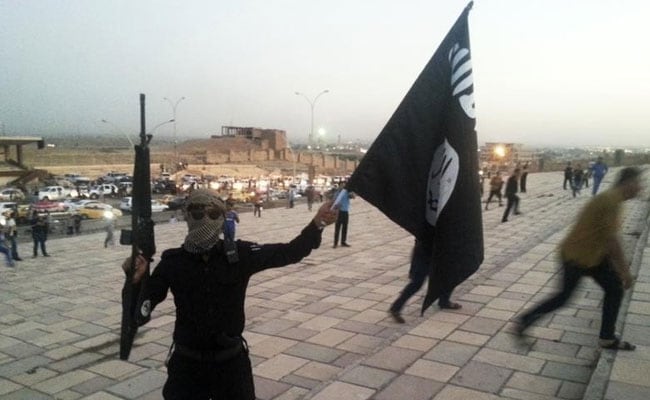
US Strike kills ISIS leader in Afghanistan and Pakistan.
Washington:
The ISIS leader in Afghanistan and Pakistan, Hafiz Saeed, was killed in July in a strike in the border region between the two countries, a US defense official said Friday.
"They got him," the official said, speaking on condition of anonymity ahead of any official announcement.
Details of the strike were not immediately available, but a US official told the BBC that Saeed was killed in a July 26 drone strike in the Kot district of Nangarhar.
The death of Saeed represents a major setback for the ISIS group as it tries to establish itself as a serious force in Pakistan and Afghanistan.
Afghan authorities erroneously believed Saeed had been killed in another strike in July 2015, when a US drone targeted dozens of ISIS-linked cadres in restive Nangarhar province, close to the Pakistani border.
That attack came less than six months after another strike in Afghanistan killed Abdul Rauf Khadim, who was thought to be the ISIS number two in the country.
Saeed was named head of ISIS's "Khorasan province," which includes Afghanistan, Pakistan and parts of neighboring countries, early last year when a group of Pakistani Taliban switched allegiance to the jihadist group.
Since then, there have been defections from the Afghan Taliban, with some insurgents apparently adopting the black ISIS flag to rebrand themselves as a more lethal force.
Most NATO combat troops who had been fighting the Taliban and other insurgent groups have now left Afghanistan, with responsibility for the country's security switching to local forces.
The Afghan troops, however, still rely on US air support and training and have struggled to stem frequent Taliban offensives.
The former Taliban leader Mullah Akhtar Mansour was killed in a US drone strike inside Pakistan in May.
Both the Pakistani Taliban and ISIS jihadists have claimed responsibility for a horrific suicide bombing on Monday at a hospital in Pakistan which killed 73 people.
The ISIS group has also claimed responsibility for a July 23 attack in Kabul that killed dozens of people and left hundreds maimed.
ISIS has been trying to expand its presence beyond its so-called "caliphate" in Iraq and Syria, where tens of thousands of jihadists have been killed in air strikes and offensives, but has made only limited progress.
(This story has not been edited by NDTV staff and is auto-generated from a syndicated feed.)
"They got him," the official said, speaking on condition of anonymity ahead of any official announcement.
Details of the strike were not immediately available, but a US official told the BBC that Saeed was killed in a July 26 drone strike in the Kot district of Nangarhar.
The death of Saeed represents a major setback for the ISIS group as it tries to establish itself as a serious force in Pakistan and Afghanistan.
Afghan authorities erroneously believed Saeed had been killed in another strike in July 2015, when a US drone targeted dozens of ISIS-linked cadres in restive Nangarhar province, close to the Pakistani border.
That attack came less than six months after another strike in Afghanistan killed Abdul Rauf Khadim, who was thought to be the ISIS number two in the country.
Saeed was named head of ISIS's "Khorasan province," which includes Afghanistan, Pakistan and parts of neighboring countries, early last year when a group of Pakistani Taliban switched allegiance to the jihadist group.
Since then, there have been defections from the Afghan Taliban, with some insurgents apparently adopting the black ISIS flag to rebrand themselves as a more lethal force.
Most NATO combat troops who had been fighting the Taliban and other insurgent groups have now left Afghanistan, with responsibility for the country's security switching to local forces.
The Afghan troops, however, still rely on US air support and training and have struggled to stem frequent Taliban offensives.
The former Taliban leader Mullah Akhtar Mansour was killed in a US drone strike inside Pakistan in May.
Both the Pakistani Taliban and ISIS jihadists have claimed responsibility for a horrific suicide bombing on Monday at a hospital in Pakistan which killed 73 people.
The ISIS group has also claimed responsibility for a July 23 attack in Kabul that killed dozens of people and left hundreds maimed.
ISIS has been trying to expand its presence beyond its so-called "caliphate" in Iraq and Syria, where tens of thousands of jihadists have been killed in air strikes and offensives, but has made only limited progress.
(This story has not been edited by NDTV staff and is auto-generated from a syndicated feed.)
Track Latest News Live on NDTV.com and get news updates from India and around the world

